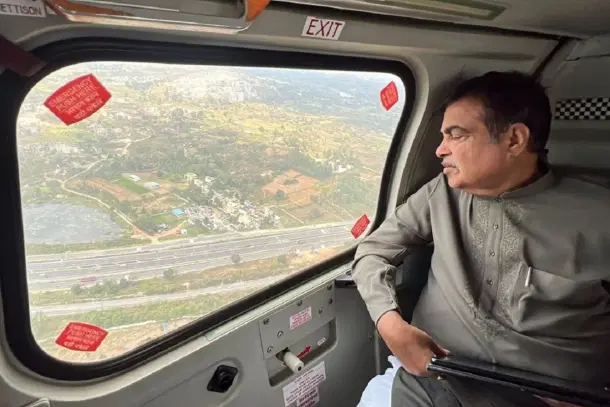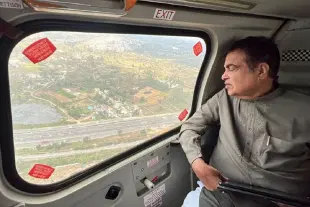News Brief
Union Transport Minister Nitin Gadkari: Delhi Set For "Flying Bus" System With Aerial Pods
Arzoo Yadav
Jun 10, 2025, 04:36 PM | Updated 04:35 PM IST
Save & read from anywhere!
Bookmark stories for easy access on any device or the Swarajya app.


Union Transport Minister Nitin Gadkari recently announced that there is a plan to connect routes with high traffic congestion, such as the one connecting Dhaula Kuan in Delhi to Manesar in Haryana via 'flying buses.'
"We are working on connecting Dhaula Kuan to Manesar through a pod system in the air, as there is a lot of traffic on that route," Gadkari stated in an interview with ANI. A similar feasibility study is also underway in Pune. "We want to make public transport easier," the minister added.
As per a report by NDTV, the concept of "flying buses" primarily refers to aerial pod-based transport systems, or Personal Rapid Transit (PRT). These small, automatic electric vehicles will operate on elevated tracks, either suspended from above or riding on top. They will function as on-demand taxis, allowing users to call a pod for direct travel to their destination without intermediate stops. Each pod can accommodate two to six people.
Gadkari also revealed his ministry's plan for a double-decker bus-like system to connect mountains in states like Uttarakhand and Jammu and Kashmir. "These are part of our efforts to make public transport more efficient and accessible," he said.
The ministry has also launched a high-capacity electric bus project in Nagpur. This 135-seater electric bus features flash-charging technology and will operate on the city's ring road.
"It will have 135 seats, executive class seating, a TV in front, and a top speed of 120 kmph," Gadkari explained. "The bus will stop every 40 km, passengers will get off and on within 30 seconds, and in that time, the bus will also get charged. These futuristic electric buses will also have "bus hostesses," similar to air hostesses, and their fares are expected to be 30 per cent lower than diesel buses.
Once the Nagpur model proves successful, the government plans to expand this service across key corridors, including Delhi-Jaipur, Delhi-Chandigarh, Delhi-Dehradun, Bengaluru-Chennai, and Mumbai to Nashik and Pune.





